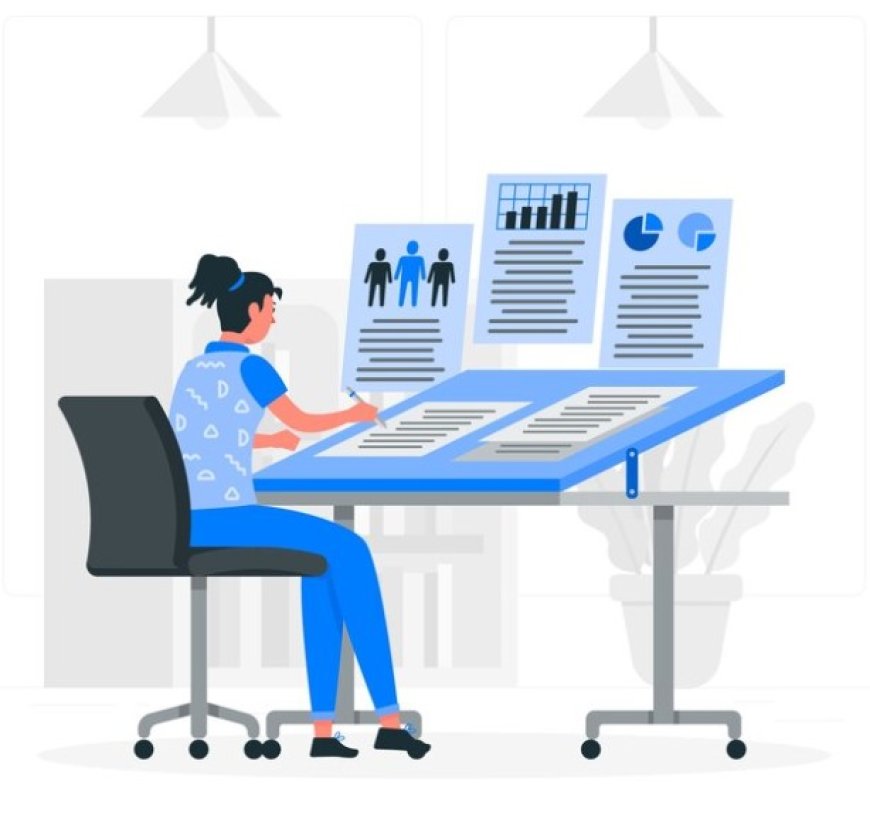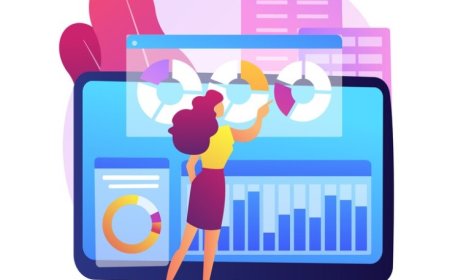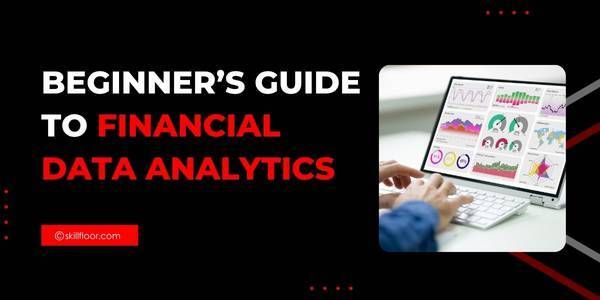How to Prepare for a Data Analyst Interview
Get ready for your data analyst interview with expert tips and strategies. Learn how to prepare effectively, answer common interview questions.

Are you aspiring to land your dream job as a Data Analyst (DA)? Congratulations on taking the first step towards a promising and rewarding career in the data-driven world! As you gear up for your Data Analyst interview, it's essential to be well-prepared and confident to showcase your skills and expertise. we'll walk you through valuable tips and insights to help you ace your Data Analyst interview and stand out as the ideal candidate.
Know the Job Role and Responsibilities:
Before heading to the interview, make sure you have a clear understanding of the Data Analyst job role and responsibilities. Familiarize yourself with the specific skills and qualifications required for the position. Research the company and industry to align your answers with their expectations and needs.
As a Data Analyst, your job role and responsibilities revolve around collecting, processing, and analyzing data to provide valuable insights and support data-driven decision-making. Here's a breakdown of the key aspects of the job:
-
Data Collection: Data Analysts are responsible for gathering relevant data from various sources, such as databases, APIs, spreadsheets, and other data repositories.
-
Data Cleaning and Preprocessing: Before analysis, Data Analysts clean and preprocess the data to ensure accuracy, consistency, and completeness. This involves handling missing values, removing duplicates, and standardizing formats.
-
Data Analysis: Conducting data analysis is a core responsibility of a Data Analyst. This includes performing exploratory data analysis, applying statistical methods, and using data visualization techniques to uncover patterns, trends, and insights.
-
Report Generation: Data Analysts create reports and dashboards to present their findings in a clear and visually appealing manner. These reports help stakeholders make informed decisions based on data-driven insights.
-
Business Insights: The primary objective of a Data Analyst is to translate raw data into actionable business insights. They analyze data to identify opportunities for improvement, recommend strategies, and support business growth.
-
Predictive Modeling: Some Data Analysts may be involved in building predictive models using machine learning algorithms to forecast future trends and outcomes based on historical data.
-
Collaboration: Data Analysts often collaborate with cross-functional teams, including data scientists, business stakeholders, and IT professionals, to understand business requirements and align data analysis with organizational goals.
-
Data Governance: Ensuring data integrity and adhering to data governance policies is essential for Data Analysts. They must maintain data security and confidentiality to protect sensitive information.
-
Continuous Learning: The field of data analysis is ever-evolving, and Data Analysts must stay updated with the latest tools, techniques, and industry trends to enhance their analytical skills.
Master Data Analysis Concepts:
To excel as a Data Analyst, mastering data analysis concepts is fundamental. Data Analysts must have a strong grasp of data manipulation, data visualization, statistical analysis, and data interpretation techniques. Proficiency in tools like Excel, SQL, Python, R, or other relevant software is essential to effectively handle and analyze datasets. Understanding data relationships, data cleaning, and exploratory data analysis are crucial for deriving meaningful insights from data. With a solid foundation in data analysis concepts, Data Analysts can uncover patterns, trends, and correlations that drive informed decision-making and support business objectives.
Showcase Your Analytical Skills:
Data Analysts need to possess strong analytical skills to derive meaningful insights from data. Be prepared to discuss your experience in handling datasets, conducting exploratory data analysis, and drawing conclusions based on data patterns.
-
Demonstrate proficiency in handling large datasets and extracting relevant information.
-
Showcase expertise in data cleaning and preprocessing to ensure data accuracy and consistency.
-
Utilize statistical techniques to analyze data and draw meaningful conclusions.
-
Employ data visualization tools to create insightful charts, graphs, and dashboards.
-
Highlight your ability to identify trends, patterns, and outliers in data.
-
Showcase problem-solving skills by applying analytical methods to real-world scenarios.
-
Illustrate your capacity to translate data insights into actionable recommendations.
-
Present examples of how you have used data analysis to drive business improvements and optimizations.
-
Discuss your experience with predictive modeling and forecasting using machine learning techniques if applicable.
-
Emphasize your attention to detail and meticulous approach to data analysis.
Highlight Problem-Solving Abilities:
Problem-solving abilities are essential for Data Analysts, as they are tasked with handling complex data challenges and deriving actionable insights. Highlight your problem-solving skills by showcasing your approach to tackling data-related issues, identifying data gaps, and finding solutions to improve data quality. Discuss how you have successfully resolved data discrepancies, addressed data outliers, and made data-driven recommendations to support business decisions. Emphasize your critical thinking, logical reasoning, and creativity in applying analytical methodologies to solve real-world problems and drive positive outcomes for the organization.
Brush Up on Statistical Knowledge:
Brushing up on statistical knowledge is vital for Data Analysts, as it forms the foundation of data analysis. Review key statistical concepts, such as measures of central tendency, dispersion, and hypothesis testing. Familiarize yourself with regression analysis, correlation, and significance testing to draw meaningful inferences from data. Understanding these statistical principles will enable you to make accurate interpretations and provide valuable insights to stakeholders. Strengthen your statistical knowledge by practicing with real-world datasets and applying statistical techniques to solve data-related challenges effectively.
Showcase Data Visualization Skills:
Data visualization skills are crucial for Data Analysts to effectively communicate complex insights to non-technical stakeholders. Showcase your data visualization abilities by creating compelling charts, graphs, and interactive dashboards that represent data trends and patterns clearly. Demonstrate proficiency in using data visualization tools like Tableau, Power BI, or Matplotlib to enhance the visual appeal and interpretability of data. Highlight your capability to choose appropriate visualization types based on the data's nature and the audience's needs. Effective data visualization allows decision-makers to grasp information quickly and make informed decisions, making it a valuable skill for any Data Analyst.
Practice Data Storytelling:
Data storytelling is a powerful skill for Data Analysts to convey the insights derived from data in a compelling and meaningful way. Practice data storytelling by structuring your analysis into a coherent narrative, connecting data points to real-world scenarios, and addressing the "why" behind the data trends. Use data visualization and infographics to support your storytelling and make data-driven stories more engaging and memorable. Effective data storytelling helps stakeholders understand the significance of data findings and empowers them to make informed decisions based on data-driven narratives.
Research Industry Trends:
Researching industry trends is vital for Data Analysts to stay current with the evolving landscape of data analytics. Stay informed about emerging technologies, advancements in data visualization, and the growing importance of AI and machine learning in data analysis. Keep track of industry-specific applications of data analytics and how businesses are leveraging data to gain a competitive edge. Understanding the latest trends helps Data Analysts align their skills and knowledge with industry demands, making them valuable assets in driving data-driven strategies and insights for organizations.
Preparing for a Data Analyst interview requires a combination of technical expertise, problem-solving abilities, and effective communication skills. Mastering data analysis concepts, showcasing analytical and data visualization skills, and staying updated with industry trends are essential for success. Emphasize your passion for data-driven insights and your ability to derive meaningful conclusions from data to make informed decisions. By thoroughly researching the company and asking thoughtful questions, you demonstrate your commitment to becoming a valuable asset to the organization. With the right preparation and confidence, you can approach your Data Analyst interview with the assurance of showcasing your capabilities and securing your path towards a fulfilling career in the dynamic world of data analytics.





























































